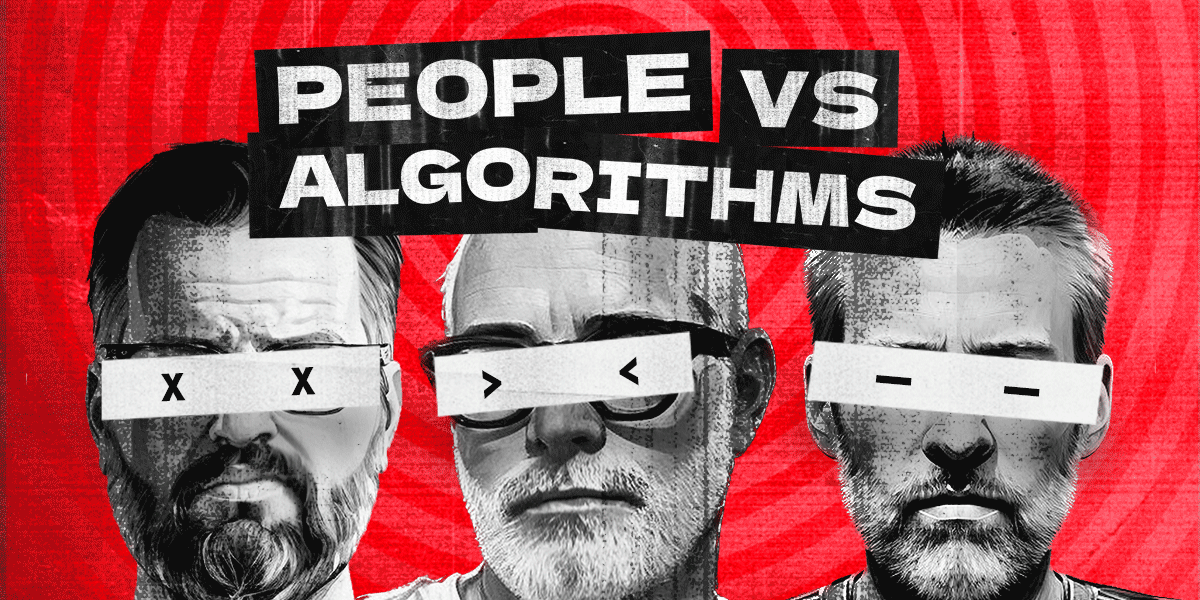Founder mode (media's version)

Thanks for the various pizza recommendations. I’m going to be contrarian and say I had better pizza in Palermo than in Naples. As a side note, Palermo is an underrated place to visit and Italy might be far behind the U.S. in GDP per capita but is far ahead on dolce vita, not really close.
Today:
- The Rebooting has partnered with Stagwell for the Future of News initiative
- The Rebooting’s conducting research to understand the state of sustainable business models at news publishers
- What founder mode looks like in media
- How Advance Local used EX.CO to grow its video ad business (sponsored)
- On People vs Algorithms: founder mode vs manager mode, AI and ads, the arrival of autonomous driving, the demise of Gannett’s affiliate business, and what Sicily’s tonnara can say about publishing
The future of news
I’m very happy to share a couple important initiatives The Rebooting is part of around the importance of creating sustainable business models for the news industry.
- The Rebooting has joined Stagwell’s Future of News initiative, which brings together premier publishing teams and industry leaders, conducts critical research, and showcases the importance of the global news industry. I’ll be hosting conversations at several Future of News events this fall, including a Future of News Summit in London on Sept 26 to debut new research into how advertising with news publishers drives business results. You can sign up here.
- The Rebooting is conducting research into the progress and challenges news publishers see in developing sustainable business models. Take the 10-minute survey. Thanks to Outbrain for partnering on this project. We will publish the results later this month. Take the survey.
Media founder mode
Like Bill Ackman and David Sacks, Paul Graham was someone I vaguely knew about until recent years. For better or worse, the capital allocator class has become our public intellectuals.
Graham set off a frenzy last week with a short missive on “founder mode,” a familiar and gauzy notion that fits well with Silicon Valley’s cultural disposition to worship the founder. Graham crudely divides companies into those in founder mode and those in manager mode. The companies in founder mode are more willing to cut against the grain, ignore org charts and anything hinting of bureaucracy. The cycle has landed back on move fast and break things after a break following Theranos, WeWork and FTX, all of which were in founder mode.
Graham’s missive struck a nerve because Silicon Valley is cleaving between startups (little tech) and massive companies (big tech). His argument is mostly around whether you need to “bring in grownups” to scale businesses.
The media business is going through its own shift into founder mode. The packaged media companies confronting new economics are squarely in manager mode. They face unattractive decisions to shrink their cost bases and scramble to fill new revenue gaps.
In contrast, there is a growing ecosystem of independent outfits that are often built around a singular personality or collection of likeminded individuals that are in founder mode. CNN faces many tough choices, but Mehdi Hassan moved on from MSNBC and created his own path with Zeteo.
Email newsletters, YouTube and podcasts are incubating the next generation of media brands. The economics of the business require new sources of leverage that these scrappier enterprises can deliver.
Founder mode is these businesses is far different from the Masters of Universe stuff Graham preaches. It rewards those who can be player-coaches and cover more ground. It’s why I have never agreed with the notion that those building from content expertise need to be paired with an “operator.” The temptation of bringing on an experienced hand to take care of all the “other stuff” is very attractive and usually a mirage. In media founder mode, you need to be hands on in all critical areas. That includes sales. I’ve spoken to writers who don’t want to sell. That can only work in a Substack model. Otherwise you aren’t going to make it if you aren’t willing to get your hands dirty. The only way to understand what the market wants is to talk as much and as often as possible to clients and prospects.
The extreme delegation of manager mode to the point of losing touch with the business is deadly in these businesses. You need to be as close to the metal as possible. The “do things that don’t scale” mantra is a modus operandi.
The challenge of media founder mode is understanding where you have leverage and having a team with different expertise in specific areas. I have favored a fractional approach, with partners on sales, client success, product and administrative. (I’m looking for an event organizer at the moment if you know of anyone great who wants to create industry events not held in hotel ballrooms or drab corporate meeting spaces.)
Others will add a full-time resource to cover off on several areas. There are tradeoffs to both approaches. Fractional adds complexity; a business operations generalist will have less specific expertise in every area.
The essence of media founder mode is doing more with less. Growth ends up being more incremental but sustainable. When in doubt, do the opposite of The Messenger.

How Advance Local grew video revenue
Advance Local – a leading media group reaching 52 million Americans across sites like NJ.com, Cleveland.com, and MLive.com – generated unprecedented revenue within 24 hours, thanks to EX.CO’s award-winning online video platform. EX.CO’s secret sauce includes contextual video recommendations using large language models (LLM) to deliver relevant videos in real-time. Learn more.

For more on founder mode, listen to this week’s episode of People vs Algorithms. Troy Young and I also discuss:
- Will AI business models mostly tack away from ads? Troy believes ads are inevitable; I see more wrought going to subscriptions, particularly if these platforms are geared to enterprise deployment.
- Autonomous driving is (suddenly) here. It was only a year ago that self-driving was portrayed as a disappointment. Now Waymo, Tesla, Cruise and others are set to reshape cities.
- Gannett’s surprising closure of Reviewed, cutting nearly 75 jobs, came as a surprise. The USA Today publisher blamed Google’s ongoing algorithm changes. Just two years ago, Gannett was crowing about 50% growth rates and commerce as a key part of its business model. We discuss whether this is an execution anomaly or speaks to a broader challenge to publisher affiliate models.
Listen to the episode on Apple | Spotify | other podcast platforms
Thanks for reading. Send me a note with feedback by hitting reply.



